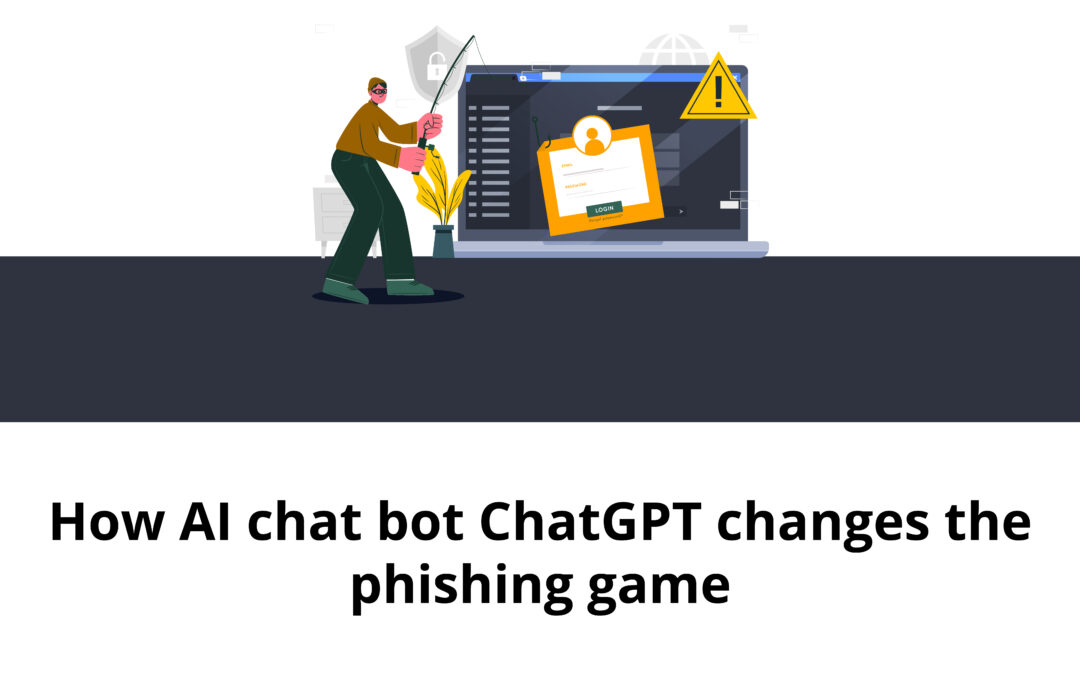Introduction
In a world where technology is changing at a rapid pace, businesses need to keep up. This is why many companies are turning toward chatbots for their website, aiming to improve customer service and reduce costs. But there’s another use for chatbots that you might not have considered: scammers are using them to trick unsuspecting customers into giving away their personal information. And if you’re an expert on phishing—and we all should be these days—this raises some serious questions about how we can combat this new threat.
ChatGPT and phishing
ChatGPT is a free, open-source artificial intelligence chatbot capable of writing emails, essays, and code. It uses machine learning to understand its users’ voice commands and respond in kind.
ChatGPT is a polyglot, meaning it can write in multiple languages. In fact, ChatGPT already has over 1 million lines of code written by the community at large—and that number continues to grow daily!
But here’s where things get interesting: ChatGPT could be used for more than just helping your business get more leads or customers; it could also be used as an effective tool by phishers seeking access to confidential information from unsuspecting victims who are fooled into thinking they’re talking with an actual human being through email or SMS messaging apps like WhatsApp or Telegram Messenger (both popular messaging platforms).
Why is it more difficult with ChatGPT?
Why is it more difficult with ChatGPT?
- ChatGPT can write emails, essays, and code. It’s easy for a human to identify an email written by a bot because of its lack of sophistication. Still, I’m all ears if you can tell me how to spot the difference between a well-written phishing email and one written by a human being. ChatGPT is capable of writing emails that are indistinguishable from those sent by humans and can rewrite itself over time as it learns from its mistakes (and successes). In other words: once you’re stuck in a conversation with this bot, it will never stop trying to convince you that it really is a human being!
- ChatGPT is a polyglot. This means that while most chatbots are limited to just one language or dialect out there—such as English or Mandarin—ChatGPT can talk like any person anywhere in the world! That includes your friends who live in different countries than yours, people who speak different languages than yours, even non-native speakers who are learning English as their second language!
ChatGPT is not just another chatbot and could become a dangerous tool for scammers.
Chatbots are getting more and more sophisticated these days. You can program a chatbot to respond like an email or write essays and code, which is why they’re so effective at phishing attacks – they appear to be human but are actually non-human entities.
Also, since ChatGPT supports multiple languages, it becomes very difficult to detect whether you’re talking with an actual human or an AI-powered chatbot built by your attacker (or yourself).
Furthermore, suppose someone creates their own ChatGPT system using different content than what’s provided in the [free] version (which comes with many default templates). In that case, this may allow them even more flexibility in terms of what types of scams they can run through their system without being detected as fraudulent activity.
Microsoft backs ChatGPT
We’re thrilled to announce that Microsoft is backing ChatGPT! As an early supporter, Microsoft has invested in ChatGPT and will be helping us bring it to market.
What does this mean for you? Well, for starters, it means that you won’t have to pay anything for a chatbot that can write emails and essays. That’s right: It’s free! But we don’t want our users just to save money—we want them to save time by using ChatGPT as a writing assistant. So if you decide to upgrade your account with us, we’ll provide all the support you need.
We also think this partnership will help us scale quickly as an open-source project (which we’d like to remain). If any other companies would like similar help scaling their tooling or messaging services for developers and businesses alike, please get in touch!
The free, open-source AI chatbot ChatGPT is improving fast and could be a game changer.
ChatGPT is a free, open-source Artificial Intelligence chat bot written in Python, which anyone can use. It can write emails and essays, code like a human, and speak multiple languages fluently.
The project has been around since last year, but it’s getting better fast and could be a game changer in phishing attacks.
Conclusion
We are very excited about ChatGPT and its potential to disrupt the phishing game. We believe that if it becomes widespread, it could be a game-changer for cybercriminals. Microsoft has shown us they are serious about investing in AI technology, so we would not be surprised if they develop their own version of this technology in-house or acquire the company behind ChatGPT to ensure their customers stay safe online.


